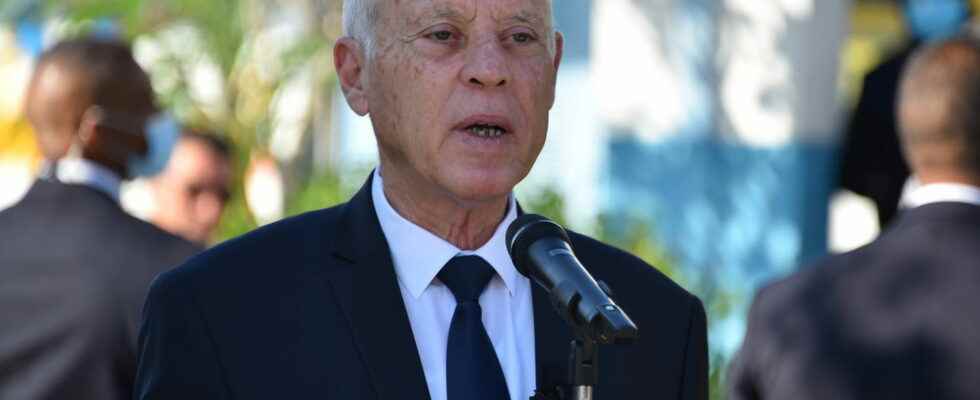The referendum organized by the Tunisian authorities, under the impetus of President Kaïs Saïed, could strengthen the powers of the Head of State. The vote closes this Monday, July 25, 2022.
This Monday, July 25, the Tunisians are called upon to decide via referendum on their Constitution and on the evolution of it, desired by the current President Kaïs Saïed. The vote on this referendum opened at 7 a.m. French time and will close at 11 p.m. This consultation, which is of major importance for the country, is held in great indifference, it is likely that the participation rate is extremely low: it was only 6.3% at 10:30 am French time.
This referendum is about this: do the Tunisians agree to strengthen the powers of the president and include his new prerogatives in the Constitution? The changes that would be made by a “yes” to the referendum would be significant: the president could in particular dismiss the head of government – who ensures the executive power with him – without having to justify himself, nor need to obtain the agreement or the confidence of Parliament. According to this constitutional reform, the Head of State can also personally submit bills to Parliament and set their priorities. A way to make the role of head of government very incidental and to make the president the essential figure – even untouchable – of the regime, with a very significant concentration of power. The Parliament – whose prerogatives would be reduced – would also be put in competition in the drafting and voting of laws by another body, a chamber made up of representatives of the regions.
The text proposed to the Tunisians is highly criticized by political observers attached to the fact that Tunisian democracy, fragile, can function as calmly as possible, with solid checks and balances. Sadok Belaïd, the jurist who was responsible for drawing up the new Constitution with the Head of State, said himself that he was in deep disagreement with the version of the text submitted to the referendum: he notably considered publicly that a yes to the referendum validating these constitutional changes could “open the way to a dictatorial regime”.
The result of the referendum should however be “yes”, according to observers, given the popularity of the Head of State, but also the fact that the opposition parties have called for not taking part in this election, considering that this referendum was “illegal” and conceived without consultation. The result of the referendum should be communicated at the end of August.
